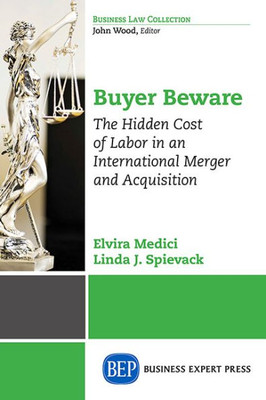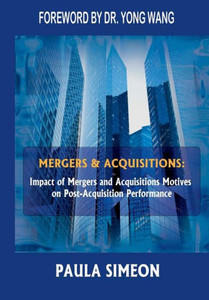

Sale
Buyer Beware: The Hidden Cost Of Labor In An International Merger And Acquisition
Business Expert Press
ISBN13:
9781631575983
$21.99
$20.87
Recent years have seen a huge growth in European cross-border mergers and acquisitions (M & A), and considerable attention has been given to how such deals arise and are completed. A U.S. investor must understand the basic difference in the principle of individual labor law in the United States and how it compares with the laws of the target country in an M & A. The European Community's Directive calls for a cooperative relationship between employer and employees. Most theoretical emphasis has been placed upon noncultural factors although it is increasingly recognized business performance cannot be separated out from national or regional cultural influence. In the United States, under the employment at-will doctrine, the U.S. private sector employers can dismiss their nonunionized employees at any time for any reason or even no reason at all. Thus, nonunion U.S. private employers do not have to demonstrate "just cause" to terminate an employee without paying severance or providing notice. They just have to make sure that the termination is not for discriminatory (e.g., based on sex, age, race, national origin, religion, or disability) or retaliatory reasons, which are outlawed by federal, state, and sometimes, local statutes. In most European Union (EU) countries and Germany and Italy specifically, employees are presumed to have a basic right to keep their jobs indefinitely. One of the greatest labor cost disparity with the United States is not wages. It is the amount of paid time-off and other perquisites or benefits. Employers in Germany and Italy will find it difficult to discharge employees without incurring substantial liability. Termination without consequence to employer can happen only if the employer has "just cause." What constitutes "just cause" is often specifically defined in the law and nothing less than serious misconduct qualifies. If the employer cannot prove "just cause," it must either provide a lengthy pretermination notice period or pay a very generous severance based on seniority. For high-level, long-term employees, these severance payments can run into six or even seven figures. In addition, back wages often accrue until a ruling is made in the case. The fundamental distinctions between these countries and the United States will not only influence a company's bottom-line profit, but also the success or failure of a merger and acquisition. These systems of corporate governance may come into conflict with American business' perceptions of what constitutes paid labor benefits and the need for "soft due diligence" research at the reacquisition stage. To assure success of the merger or acquisition or both and avoid a point of conflict, the company needs to understand the cultural landscape of the market, the target country's labor laws, investigate the cost of compliance or violation, and the success of the postacquisition phase.
- | Author: Elvira Medici|Linda J. Spievack
- | Publisher: Business Expert Press
- | Publication Date: Dec 29, 2016
- | Number of Pages: 92 pages
- | Language: English
- | Binding: Paperback
- | ISBN-10: 1631575988
- | ISBN-13: 9781631575983
- Author:
- Elvira Medici|Linda J. Spievack
- Publisher:
- Business Expert Press
- Publication Date:
- Dec 29, 2016
- Number of pages:
- 92 pages
- Language:
- English
- Binding:
- Paperback
- ISBN-10:
- 1631575988
- ISBN-13:
- 9781631575983





